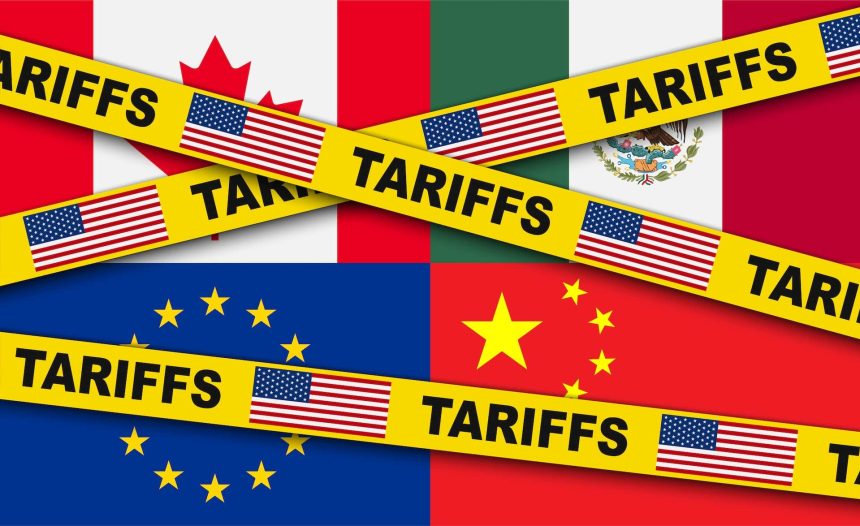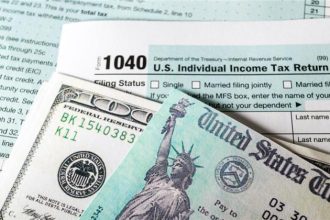Credit Sesame explains how global market chaos, triggered by new tariffs and economic uncertainty, could put your credit at risk in unexpected ways.
A sharp drop in the stock market and international backlash to U.S. tariff policies have reminded consumers that financial turbulence does not stop at national borders. Whether it’s higher prices on imported goods or a sudden change in lending behavior, global decisions can shape your personal finances more than you might expect.
Understanding how international developments translate to your credit score can help you respond calmly and confidently when the headlines get overwhelming. Here is what to watch for—and how to protect your financial footing.
How global chaos trickles down to your finances
Big-picture events like new tariffs or plummeting stock markets may feel distant, but they can affect your household finances faster than expected. When global economies react to policy shifts, such as the newly announced U.S. tariffs and retaliatory threats, businesses often face higher costs and reduced confidence.
That economic pressure can lead to job insecurity, cost-cutting measures, and higher prices for essential goods. This strains household budgets, potentially pushing people to rely more heavily on credit to manage everyday expenses.
According to the U.S. Bureau of Labor Statistics, inflation has remained a concern in recent months, driving up the cost of living and affecting how Americans spend and save.
Tariffs and inflation: Why your credit card might take the hit
Tariffs often lead to higher consumer prices, which can ripple across spending habits. As food, gas, and other essentials become more expensive, people may rely more on credit cards to bridge the gap.
A sudden increase in card balances can raise your credit utilization ratio—a key factor in your credit score. Even if you’re paying your bills, using a higher percentage of your available credit could put downward pressure on your score.
Keeping an eye on your utilization is especially important during economic stress. Credit Sesame members can track their credit usage and monitor score changes with free credit monitoring tools.
Late payments and stress: The credit damage you might not see coming
When money gets tight, some bills fall through the cracks. A missed payment, even if unintentional, can have a lasting impact on your credit.
Credit scores are especially sensitive to payment history. One late payment can stay on your credit report for up to seven years and cause a noticeable drop in your score. During periods of financial stress caused by global instability, this risk grows.
Staying organized with automated payments and regular credit checks can reduce the risk of accidental slip-ups.
Loan rates, approvals, and the credit ripple effect
Economic uncertainty can also affect how lenders evaluate risk. When markets drop or inflation spikes, lenders may pull back on approvals or offer credit with higher interest rates.
That means you might qualify for a smaller loan than expected, face stricter requirements, or pay more in interest, especially if your score is already under pressure.
Monitoring your credit helps you understand your standing before applying for new credit or loans. Credit Sesame offers personalized insights that can help you prepare.
The Consumer Financial Protection Bureau publishes ongoing consumer credit trends, including insights into borrowing behavior and lender activity during economic shifts.
Protecting your score during uncertain times
When markets are volatile and prices are climbing, staying proactive with your credit becomes even more important. Here are a few ways to help protect your score:
- Track your spending. Understanding where your money goes can help you stay ahead of rising costs.
- Reduce unnecessary debt. Pay down high-interest credit cards when possible to improve your utilization ratio.
- Set up payment alerts. Avoid late payments by setting reminders or using automatic payments.
- Monitor your credit. Stay informed with tools like Credit Sesame’s free credit score checks and alerts.
Taking small, consistent steps can help you weather financial uncertainty without damaging your credit health.
Staying focused when global market chaos puts your credit at risk
Global events are out of your control, but their financial impact can reach your doorstep. Rising tariffs, economic tension, and shifting markets all influence how much you spend, borrow, and repay.
Even when headlines are unsettling, you have tools and options that can help you protect your financial progress. Keeping track of your credit score, staying on top of your bills, and minimizing debt are practical steps that may soften the blow of external shocks.
In uncertain times, focusing on what you can control is often the most powerful move you can make.
If you enjoyed Credit at risk? What global market chaos may mean for your score you may like,
Disclaimer: The article and information provided here are for informational purposes only and are not intended as a substitute for professional advice.
Read the full article here
















